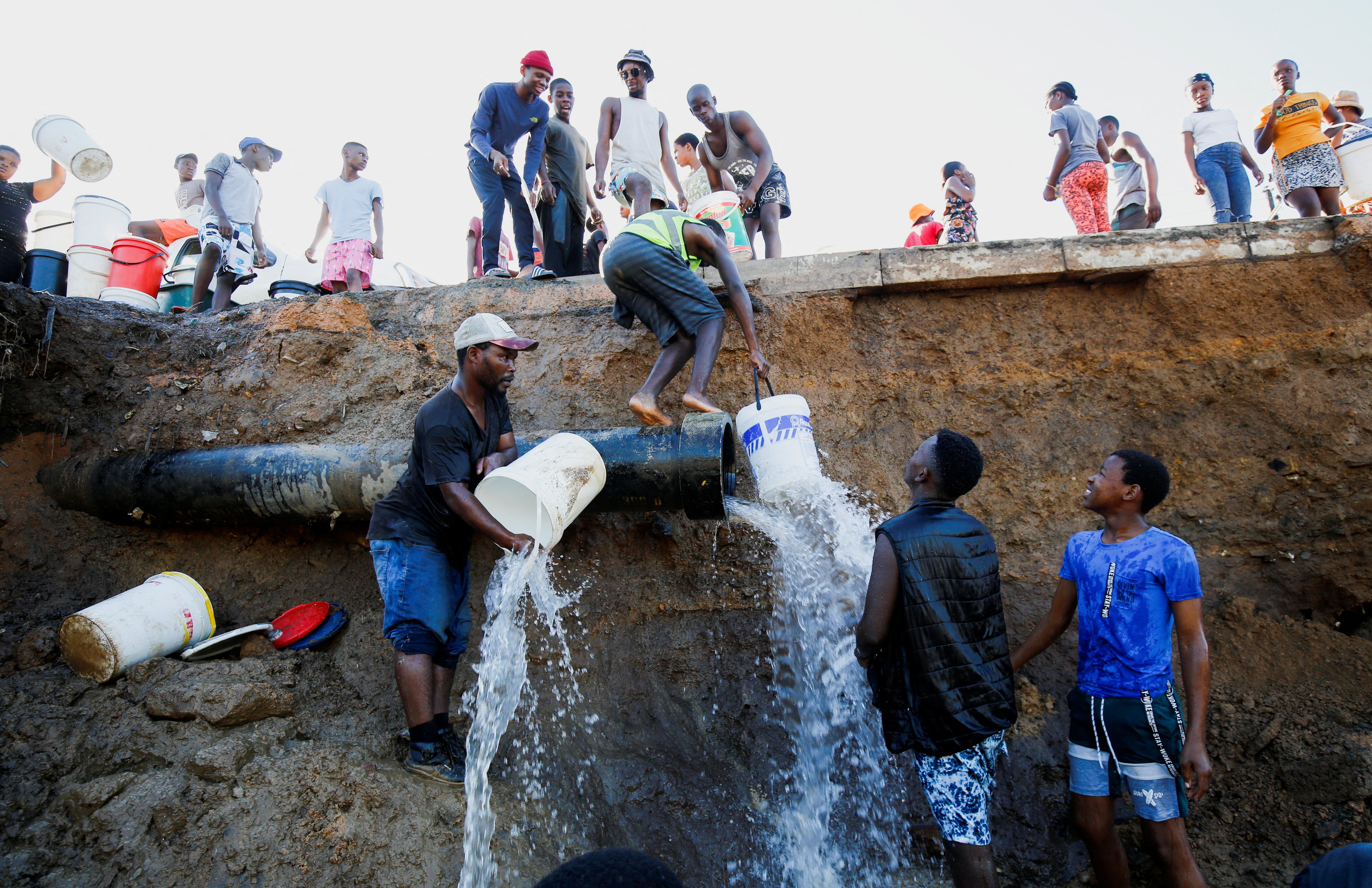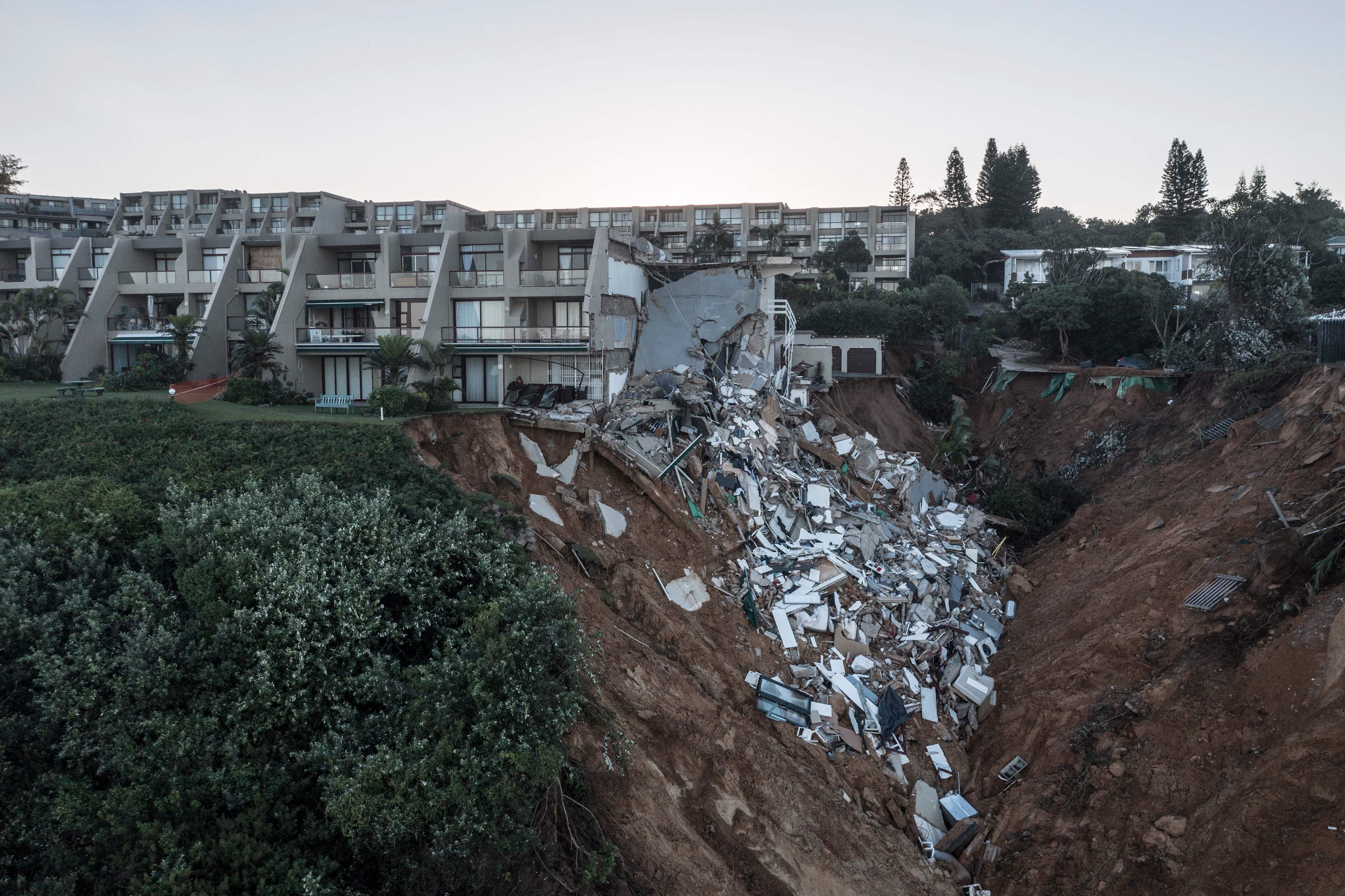South Africa’s president says Durban floods show ‘climate change is here’, with more than 300 dead
‘This disaster is part of climate change,’ said president Cyril Ramaphosa
Your support helps us to tell the story
From reproductive rights to climate change to Big Tech, The Independent is on the ground when the story is developing. Whether it's investigating the financials of Elon Musk's pro-Trump PAC or producing our latest documentary, 'The A Word', which shines a light on the American women fighting for reproductive rights, we know how important it is to parse out the facts from the messaging.
At such a critical moment in US history, we need reporters on the ground. Your donation allows us to keep sending journalists to speak to both sides of the story.
The Independent is trusted by Americans across the entire political spectrum. And unlike many other quality news outlets, we choose not to lock Americans out of our reporting and analysis with paywalls. We believe quality journalism should be available to everyone, paid for by those who can afford it.
Your support makes all the difference.South Africa’s president Cyril Ramaphosa has said disastrous flooding in the Durban area is linked to the climate emergency, as the death toll climbs to more than 300 people.
“This disaster is part of climate change,” he said, as he visited communities affected by the flooding on Wednesday, according to Associated Press. “It is telling us that climate change is serious, it is here.”
“We no longer can postpone what we need to do, and the measures we need to take to deal with climate change,” he added.
Heavy rainfall in the coastal province of KwaZulu-Natal in recent days has killed at least 306 people, the provincial government said Thursday.
Photos from the area show roads, bridges, and shipping containers at Durban’s port swept away by the deluge and low lying parts of the city underwater.Access to essential services such as water and sanitation had also been affected, a government official said.
Increasingly, scientists are able to assess if and to what extent climate change influenced some types of extreme weather events.

In the case of flooding in South Africa’s province of KwaZulu-Natal, scientists would need to do an attribution study to establish how much climate change influenced the event, Friederike Otto, a senior lecturer in climate science at the Grantham Institute for Climate Change and the Environment at Imperial College London, told The Independent.
“It will very likely be the case that climate change made the floods [in South Africa] more intense,” she said, but warned that it would be inaccurate to attribute the rainfall and flooding entirely to climate change.
“There would still have been devastating floods without climate change,” she said, adding that the vulnerability of these communities to extreme weather – independent of the climate crisis – turned the weather event into a disaster.
“To blame it all on climate change would be really wrong,” she said.
The KwaZulu-Natal provincial government said Thursday that the president had authorised its request to declare a state of disaster in the region, which would unlock funds to help the flood-ravaged communities. It has been estimated that billions of rand worth of damage has been caused to homes and infrastructure.

“The heavy rainfall that has descended on our land over the past few days, has wreaked untold havoc and unleashed massive damage,” it said in an earlier statement posted on Facebook.
President Ramaphosa had been in the Durban area on Wednesday visiting families affected by the flooding.
“You’re battling one of the biggest incidents we’ve seen and we thought this only happens in other countries like Mozambique or Zimbabwe,” he told the victims, according to Reuters.
South Africa’s northern-eastern neighbour Mozambique has been badly affected by flooding in recent weeks, as have other parts of southeast Africa.
Between January and March, southeast Africa was hit by three tropical cyclones and two tropical storms in just six weeks – with more than a million people affected by extreme rainfall and severe flooding, and some 230 recorded deaths.
Madagascar, Malawi and Mozambique were the countries worst hit.
This week climate scientists at the World Weather Attribution group, which Dr Otto helps lead, published findings that concluded that the extreme rainfall in those three countries was more intense and damaging due to the climate crisis.

Join our commenting forum
Join thought-provoking conversations, follow other Independent readers and see their replies
Comments